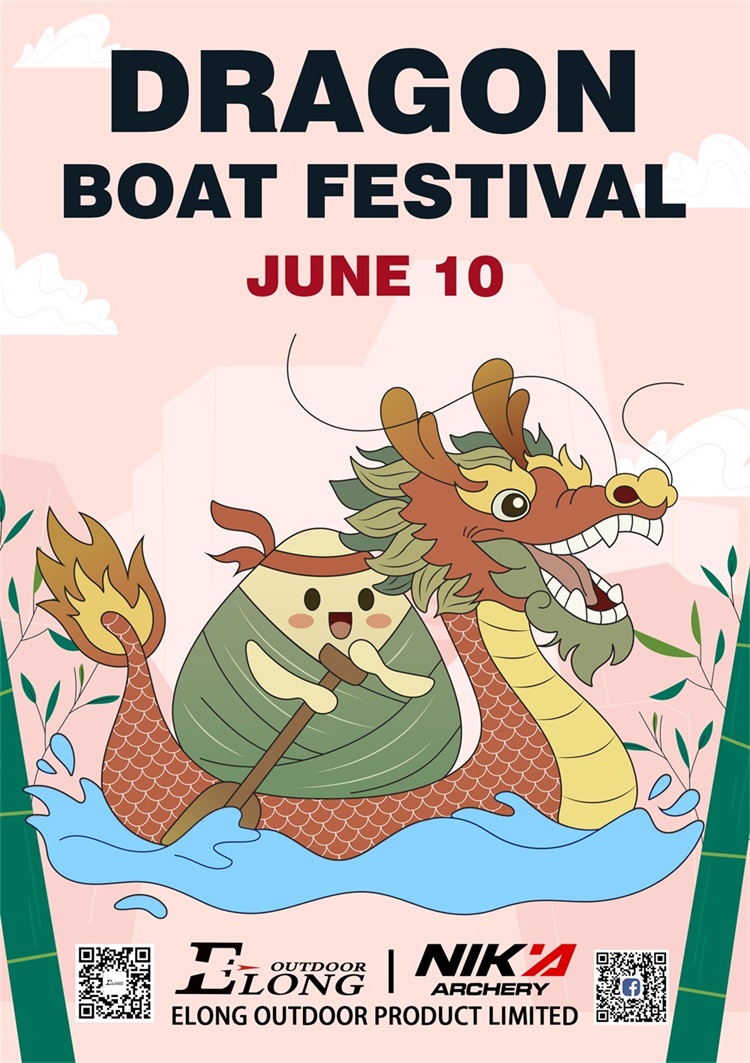In China, the Dragon Boat Festival is more than just a festival; it is also an arena for a wealth of cultural and sporting activities. The festival originated as a commemoration of Qu Yuan, a poet of the State of Chu during the Warring States period, who threw himself into the Miluo River on the fifth day of the fifth month, as well as other historical figures such as Wu Zixu, Cao'e and Jie Zitui, etc. The State Council included the Duanwu Festival in the first batch of national intangible cultural heritages in May 2006, and it has been listed as a national legal holiday since 2008. In September 2009, UNESCO officially approved its inclusion in the Representative List of the Intangible Cultural Heritage of Humanity, making the Dragon Boat Festival the first Chinese festival to be selected as a World Intangible Heritage.
During the Dragon Boat Festival, ancient people would engage in a variety of interesting sports activities, the most popular of which was dragon boat racing. It is rumoured that this custom originated in ancient times when the people of Chu competed in rowing boats in order to catch up with the rescue of Qu Yuan. In fact, ‘Dragon Boat Racing’ has existed as early as the Warring States period, when people paddled canoes carved in the shape of dragons to the sound of rapid drumbeats for a game of racing, which was both a ritual and a recreational activity.
In addition to commemorating Qu Yuan, the dragon boat races around the world have other meanings. For example, the dragon boat race in Jiangsu and Zhejiang has the meaning of commemorating Qiu Jin, a modern female democratic revolutionary aspirant born in the region. The Miao people in Guizhou hold the Dragon Boat Festival from 25 to 28 May to celebrate the victory of rice-planting and pray for a good harvest. The Dai people of Yunnan race dragon boats during the Water Festival to commemorate the ancient hero of Yan Hongwu. 1980, dragon boat racing was included in China's national sports events, which not only gave new vigour to this traditional sports activity, but also became a link between the past and the present, between tradition and modernity.
In the Tang Dynasty, the Dragon Boat Festival, and the production of powder dough corn and shooting willow and other sports and recreational activities. ‘Kaiyuan Tianbao remains’ records, the Palace Dragon Boat Festival will make powder corn, and with a small horn bow to shoot the powder in the plate, the shooter can eat. Shooting willow game originated in the Hun, Xianbei and other northern nomadic rituals, the Jin Dynasty has become a custom of the Dragon Boat Festival.
Nowadays, with the inclusion of traditional sports activities such as dragon boat racing in the national sports competitions, these activities have been revitalised and have become a link between the past and the present, tradition and modernity.
On this day full of historical and traditional significance, Huizhou Elong Outdoor Product Ltd. wishes everyone a healthy Dragon Boat Festival! We focus on providing high-quality shooting equipment for archery enthusiasts, inheriting and promoting the traditional archery culture. Let us enjoy the fun of traditional festivals together and promote the excellent traditional Chinese culture.
Elong Outdoor Team
8th June, 2024

Contact: Kelly yin
Phone: 15918632152
Tel: 0752-6920238
Email: [email protected]
Add: No.4 Lianxing Road,Shiwan Town,Boluo County,Huizhou Guangdong,China 516127
We chat
